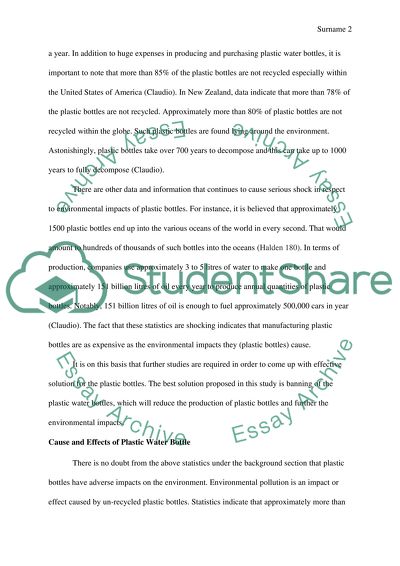Cite this document
(“Plastic Water Bottles and Their Environmental Impacts Research Proposal”, n.d.)
Plastic Water Bottles and Their Environmental Impacts Research Proposal. Retrieved from https://studentshare.org/environmental-studies/1477924-plastic-water-bottle-should-be-banned-due-to-its
Plastic Water Bottles and Their Environmental Impacts Research Proposal. Retrieved from https://studentshare.org/environmental-studies/1477924-plastic-water-bottle-should-be-banned-due-to-its
(Plastic Water Bottles and Their Environmental Impacts Research Proposal)
Plastic Water Bottles and Their Environmental Impacts Research Proposal. https://studentshare.org/environmental-studies/1477924-plastic-water-bottle-should-be-banned-due-to-its.
Plastic Water Bottles and Their Environmental Impacts Research Proposal. https://studentshare.org/environmental-studies/1477924-plastic-water-bottle-should-be-banned-due-to-its.
“Plastic Water Bottles and Their Environmental Impacts Research Proposal”, n.d. https://studentshare.org/environmental-studies/1477924-plastic-water-bottle-should-be-banned-due-to-its.


